What is Eid al-Adha?
Eid al-Adha, also known as the "Festival of Sacrifice," is one of the most important festivals in the Islamic calendar. It commemorates the willingness of Prophet Ibrahim (Abraham) to sacrifice his son as an act of obedience to God.When is Eid al-Adha celebrated?
Eid al-Adha falls on the 10th day of Dhu al-Hijjah, the twelfth and final month of the Islamic lunar calendar. The exact date varies each year as it is determined by the sighting of the new moon.How is Eid al-Adha celebrated?
1. Prayer: The day starts with a special Eid prayer, which is usually performed in an open area or a mosque. 2. Sacrifice: Many Muslims sacrifice an animal, such as a sheep, goat, cow, or camel, as a symbolic act of Prophet Ibrahim's willingness to sacrifice his son. The meat is then distributed among family, friends, and the less fortunate. 3. Charity: It is a time for giving to those in need, and many Muslims offer food, money, or other forms of assistance to the less fortunate. 4. Celebration: Families and friends come together to celebrate with feasts, exchanging gifts, and expressing gratitude for their blessings.Why is Eid al-Adha important?
Eid al-Adha is a time for Muslims to demonstrate their obedience, gratitude, and submission to God. It also serves as a reminder of the importance of sacrifice, charity, and compassion towards others.Study Guide
Here are some questions to help you understand Eid al-Adha:
- What is the significance of Eid al-Adha in the Islamic calendar?
- How is Eid al-Adha connected to the story of Prophet Ibrahim?
- Describe the rituals and practices associated with Eid al-Adha.
- Why is charity an important aspect of Eid al-Adha?
- Discuss the importance of gratitude and celebration during Eid al-Adha.
◂Social Studies Worksheets and Study Guides First Grade. Observance of Holidays
Worksheet/Answer key Thanksgiving Day
Thanksgiving Day  Worksheet/Answer key
Worksheet/Answer key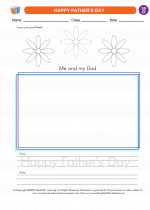 HAPPY FATHER'S DAY
HAPPY FATHER'S DAY  Worksheet/Answer key
Worksheet/Answer key HAPPY FATHER'S DAY
HAPPY FATHER'S DAY  Worksheet/Answer key
Worksheet/Answer key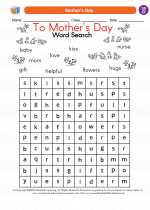 Mother`s Day
Mother`s Day  Worksheet/Answer key
Worksheet/Answer key Mother`s Day
Mother`s Day  Worksheet/Answer key
Worksheet/Answer key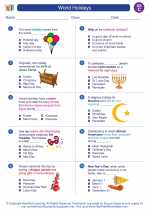 World Holidays
World Holidays  Worksheet/Answer key
Worksheet/Answer key World Holidays
World Holidays  Worksheet/Answer key
Worksheet/Answer key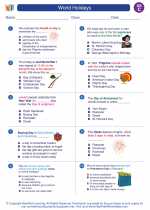 World Holidays
World Holidays  Worksheet/Answer key
Worksheet/Answer key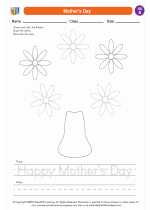 Mother's Day
Mother's Day  Worksheet/Answer key
Worksheet/Answer key Veterans Day
Veterans Day  Coloring Worksheet
Coloring Worksheet Vererans Day Color and Cut Activity
Vererans Day Color and Cut Activity 

 Worksheet/Answer key
Worksheet/Answer key
 Worksheet/Answer key
Worksheet/Answer key
 Worksheet/Answer key
Worksheet/Answer key
 Worksheet/Answer key
Worksheet/Answer key
 Worksheet/Answer key
Worksheet/Answer key
 Worksheet/Answer key
Worksheet/Answer key
 Worksheet/Answer key
Worksheet/Answer key
 Worksheet/Answer key
Worksheet/Answer key
 Worksheet/Answer key
Worksheet/Answer key
 Coloring Worksheet
Coloring Worksheet

The resources above cover the following skills:
Social Studies, Grade 1
History. The student understands the origins of customs, holidays, and celebrations. The student is expected to:
Compare the observance of holidays and celebrations, past and present.